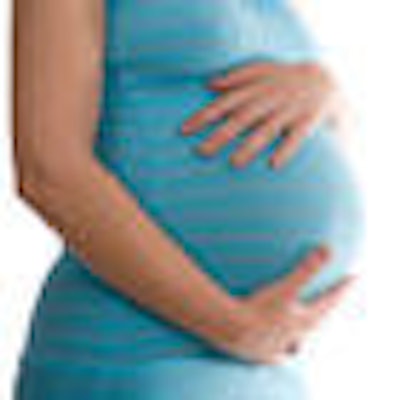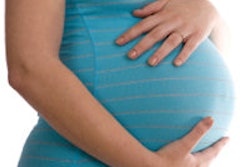
Periodontal treatment during pregnancy does not reduce the risks of preterm birth and low birth weight, a new study in the Journal of the American Dental Association has found (December 2010, Vol. 141:12, pp. 1423-1434).
The relationship between periodontal disease and pregnancy outcomes has become the subject of debate in recent years, with different studies reporting a range of results. And while some experts agree with the findings of the JADA study, evidence to the contrary continues to trickle in.
For the JADA study, Mel Mupparapu, DMD, a professor and director of oral and maxillofacial radiology at the University of Medicine and Dentistry of New Jersey, and colleagues conducted a meta-analysis to assess the overall effect of treating periodontal disease during pregnancy.
"The problem with most of the studies either for or against the hypothesis about periodontal therapy during pregnancy are that these studies were designed differently, had varying patient recruitment protocols, had multiple ways of securing a periodontal disease diagnosis, and had many different protocols of treating the periodontal disease," Dr. Mupparapu explained.
Since the studies had no commonalities, the data could not be relied upon, so a meta-analysis of pooling the data together and comparing them with some degree of uniformity was the only way to come to a reliable conclusion, he added.
Randomized clinical trialsDr. Mupparapu and his colleagues conducted the meta-analysis using two database aggregators: OvidSP (12 databases) and EBSCOhost (11 databases). They included randomized controlled trials of pregnant women with periodontal disease who were assigned to a treatment arm (scaling and root planing with polishing) or a control arm (no treatment or only prophylaxis).
Ten randomized controlled trials met the inclusion criteria for preterm birth, and eight met the inclusion criteria for low birth weight. The results indicated that periodontal treatment during pregnancy did not reduce the risks of preterm birth and low birth weight.
—Steven Offenbacher, DDS, University of
North Carolina
"Pooled results from the high-quality randomized controlled trials with low bias do not support the continued treatment of periodontal disease in pregnancy to prevent preterm birth, low birth weight, or both," the authors concluded.
Further studies are needed to understand the subject better, and stricter criteria for diagnosing periodontitis and guidelines for documenting the effectiveness of treatment should be developed to ensure uniformity in future studies, they added.
The JADA study authors were surprised that so many studies used so many different methods for both the diagnosis of periodontal disease and treatment strategies, and also that they did not use rigid criteria to absolutely rule out the effect of confounding factors such as smoking and use of antibiotics as part of the periodontal therapy, Dr. Mupparapu said.
"The results of our study based on the stringent criteria used to conduct our meta-analysis and the sensitivity and subgroup analysis for elimination of bias showed that periodontal treatment during pregnancy does not reduce the risks of pregnant women experiencing preterm birth and low birth weight," he told DrBicuspid.com. "While pregnant women should definitely seek periodontal care for improving dental health, it should not be sought solely for the purposes of reducing these assumed risks as there is no strong evidence for that yet."
These findings are very important for dentists -- both general dentists and specialists such as periodontists -- because it clears up concerns regarding timely periodontal therapy during pregnancy, he added.
Not everyone agrees
John Newnham, MD, a professor of obstetrics at the University of Western Australia who has done similar research (Obstetrics and Gynecology, December 2009, Vol. 114:6, pp. 1239-1248), told DrBicuspid.com that the link between the two conditions is yet to be proved.
"We have all been through a period of great excitement that treatment of periodontal disease in pregnancy may prevent preterm birth and other major pregnancy complications," he said. "Unfortunately, not true."
His group's randomized controlled trial demonstrated that effective treatment of periodontal disease in midpregnancy neither helps nor harms pregnancy, he concluded.
Overall, Dr. Mupparapu's meta-analysis is a reasonable summary of the data that are out there, said Steven Offenbacher, DDS, chair of the department of periodontology at the University of North Carolina School of Dentistry, in a DrBicuspid.com interview.
However, Dr. Offenbacher -- who has conducted similar research that found that periodontal therapy did not reduce the incidence of preterm delivery (Obstetrics and Gynecology, September 2009, Vol. 114:3, pp. 551-559) -- is not dissuaded by Dr. Mupparapu's findings.
"There is compelling evidence of an association between the two conditions," he said. "We just don't know how best to manage it."
Ways in which dentists have been treating pregnant women are not effective, and a single intervention during pregnancy cannot adequately address the problem, Dr. Offenbacher added.
"The key is to provide follow-up care and monitor progress," he said. "Also, the effectiveness of treatment may vary from patient to patient depending on the immune response of the mother and whether or not she has the appropriate antibodies."
A biological connection exists between preterm birth, low birth weight, and periodontal disease, but more research needs to be done to understand the mechanism behind this connection, he concluded.
And evidence of a link between periodontal disease and pregnancy outcomes continues to pile up. Another recent study found that successful periodontal therapy in pregnant women suffering from periodontitis is a protective factor promoting the birth of children with normal weight (Journal of Periodontology, December 2010, Vol. 81:12, pp. 1725-1733).
Dr. Mupparapu, however, said that while it is advisable to have regular dental checkups during pregnancy, it is more important not to worry about the consequences of "not getting timely intervention" before childbirth.
"Until further evidence suggests otherwise, this is what dentists will have to tell their patients," he concluded.
Copyright © 2010 DrBicuspid.com

.hpp4JFpXkV.png?crop=focalpoint&fit=crop&fp-x=0.5&fp-y=0.5&h=100&w=100&auto=format%2Ccompress&q=70)





.RbyOLNR6ps.png?crop=focalpoint&fit=crop&fp-x=0.5&fp-y=0.5&h=167&w=250&auto=format%2Ccompress&q=70)











